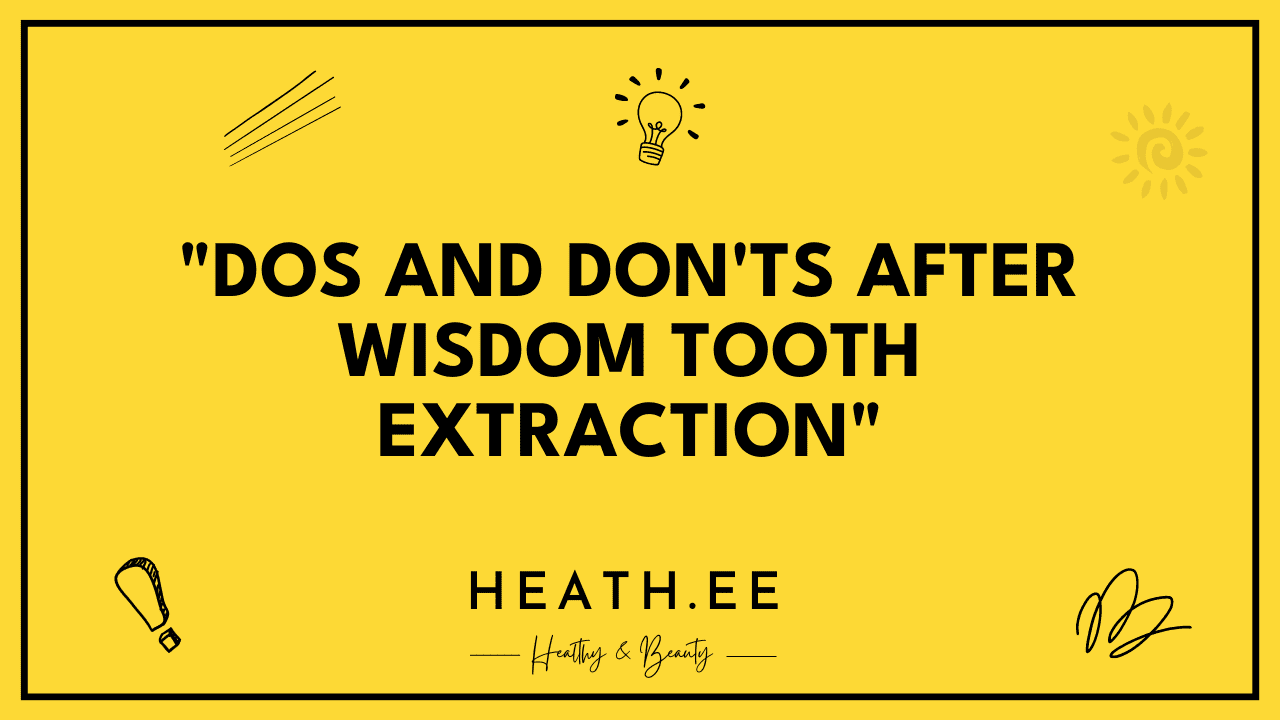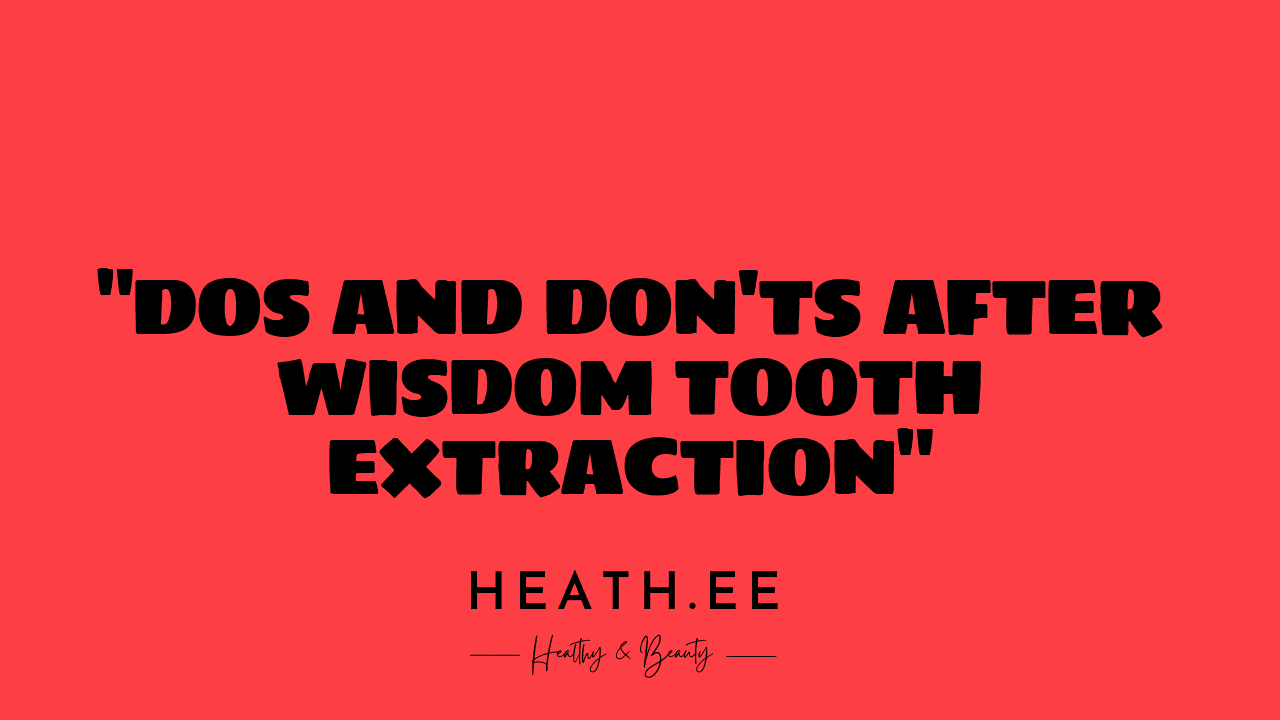Wisdom tooth extraction is a common dental procedure that many people go through. The procedure itself is relatively simple, but it can have a long-term impact on your oral health. Therefore, it’s important to know the dos and don’ts after wisdom tooth extraction to ensure that your mouth heals properly. In this guide, we’ll discuss the dos and don’ts after wisdom tooth extraction, so you can recover quickly and safely.
What Are Wisdom Teeth?
Before we get into the dos and don’ts after wisdom tooth extraction, let’s take a moment to discuss what wisdom teeth are. Wisdom teeth are the third and final set of molars that usually appear between the ages of 17 and 25. They are the last teeth to emerge in the mouth and often cause overcrowding and other problems, which is why they are sometimes removed.

Why Is Wisdom Tooth Extraction Necessary?
Wisdom tooth extraction is necessary when the teeth are impacted, meaning they are stuck in the jawbone or gums. Impacted wisdom teeth can cause a variety of problems, including pain, infection, and damage to other teeth. In some cases, they may also cause cysts or tumors. Therefore, it is often recommended that wisdom teeth are removed before they can cause any of these problems.
What Are the Signs That Wisdom Teeth Need to Be Extracted?
There are a few signs that may indicate that wisdom teeth need to be extracted. These include pain, swelling, redness, and tenderness in the area around the wisdom teeth. You may also experience bad breath or a bad taste in your mouth. If you experience any of these symptoms, it’s important to see your dentist as soon as possible.

What Should You Expect During and After Wisdom Tooth Extraction?
Wisdom tooth extraction is typically done under local anesthesia, so you won’t feel any pain during the procedure. After the procedure, you may experience some swelling and discomfort. Your dentist may prescribe pain medication to help with this. You may also experience some bleeding, which is normal.
Dos and Don’ts After Wisdom Tooth Extraction
Now that you know what to expect during and after wisdom tooth extraction, let’s discuss the dos and don’ts after wisdom tooth extraction. It’s important to follow these instructions to ensure that your mouth heals properly and quickly.
Do:
- Take any prescribed medications as directed.
- Apply an ice pack to the area to reduce swelling.
- Rinse your mouth with warm saltwater several times a day to help keep the area clean.
- Eat soft foods that are easy to chew.
- Brush your teeth gently, taking care not to disturb the extraction site.
- Get plenty of rest.
Don’t:
- Smoke or use any type of tobacco products.
- Drink alcohol.
- Use a straw.
- Eat hard or crunchy foods.
- Touch or disturb the extraction site.
- Exercise or do any strenuous activities for at least 24 hours.
When Can I Resume Normal Activities After Wisdom Tooth Extraction?
It’s important to give your mouth time to heal after wisdom tooth extraction. Most people can resume normal activities within a few days. However, it’s important to listen to your body and take it easy until you’re feeling better.
How Can I Prevent Problems After Wisdom Tooth Extraction?
The best way to prevent problems after wisdom tooth extraction is to follow your dentist’s instructions. This includes taking any prescribed medications as directed, eating soft foods, and avoiding activities that could disrupt the extraction site. Additionally, it’s important to practice good oral hygiene, including brushing and flossing regularly.
When Should I See a Dentist After Wisdom Tooth Extraction?
It’s important to follow up with your dentist after wisdom tooth extraction. Your dentist may recommend a follow-up appointment to check on the healing process. Additionally, they may recommend X-rays to make sure everything is healing properly.
Conclusion
Wisdom tooth extraction is a common dental procedure that can have a long-term impact on your oral health. It’s important to know the dos and don’ts after wisdom tooth extraction to ensure that your mouth heals properly. Follow the instructions provided by your dentist, such as taking any prescribed medications as directed, eating soft foods, and avoiding activities that could disrupt the extraction site. Additionally, practice good oral hygiene and make sure to follow up with your dentist for a follow-up appointment and X-rays. Doing so will help ensure that your mouth heals quickly and properly.



